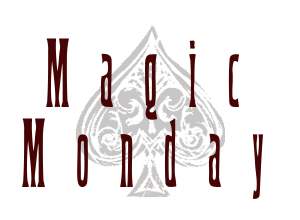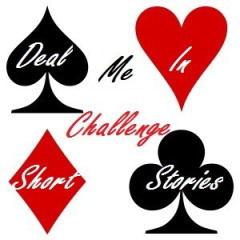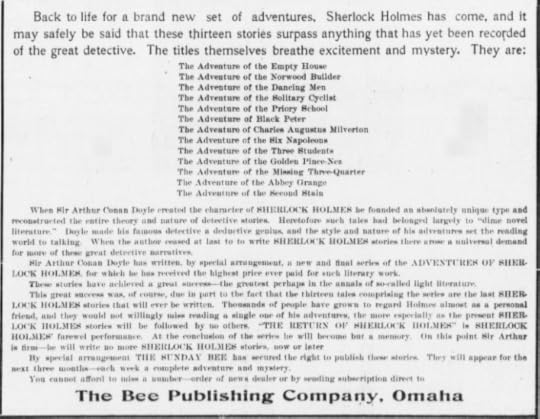Katherine Nabity's Blog, page 168
May 31, 2016
Review ~ Smoke Gets in Your Eyes
Most people want to avoid thinking about death, but Caitlin Doughty—a twenty-something with a degree in medieval history and a flair for the macabre—took a job at a crematory, turning morbid curiosity into her life’s work. With an original voice that combines fearless curiosity and mordant wit, Caitlin tells an unusual coming-of-age story full of bizarre encounters, gallows humor, and vivid characters (both living and very dead). Describing how she swept ashes from the machines (and sometimes onto her clothes), and cared for bodies of all shapes and sizes, Caitlin becomes an intrepid explorer in the world of the deceased. Her eye-opening memoir shows how our fear of dying warps our culture and society, and she calls for better ways of dealing with death (and our dead). In the spirit of her popular Web series, “Ask a Mortician,” Caitlin’s engaging narrative style makes this otherwise scary topic both approachable and profound. (via Goodreads)
When asked if there are books that have changed my life, that have caused a paradigm shift in the way I think about something, Mary Roach’s Stiff is high on the list. That might seem to be an odd choice, but Roach’s book on “the curious life of human cadavers” was the first time I had considered what I would prefer to have done with my earthly remains and start having conversations with my loved ones about it. Roach’s book is practical in approach—the writer is a curious investigator into the ways to make the object of a corpse useful post-death rather than the usual burial or cremation.
In Smoke Gets in Your Eyes, Caitlin Doughty moves past the more clinical corpse-as-object point of view. She uses personal memoir to examine what we humans routinely do with our dead and how that reflects our attitudes toward death itself. Because of this Smoke Gets in Your Eyes is probably less for the faint of heart than Stiff. On one hand, when Doughty tells of her work at the crematory, you do get the almost comforting sense that no matter what the job is, it’s a job. On the other, all her stories are personal in nature. She knows the names of the dead and often their circumstances. Those details are in mind when she relates the details of the death industry.
I was familiar with Doughty’s “Ask a Mortician” videos and her Order of the Good Death manifesto before her book came out. Simply, Doughty theorizes (and Roach to some extent, as well) that our very hands-off approach to dealing with the dead is a reflection of our own fear of mortality. Within the last hundred years, the funeral industry has grown and made its services seem necessary—that a dead body is a dangerous thing that should only be taken care of by professionals. We (primarily this is an American “we”) have gladly bought into this notion for better or worse. Doughty’s aim is to educate and to bring about death positivity. Everyone dies eventually, so why should it be something filled with fear or, weirdly, shame?
Does Smoke Gets in Your Eyes do a good job advocating her position? Doughty tries to cover a lot of ground in 270 pages: her own experiences in the industry, some of the history of the industry, other death rituals throughout the world, and her Order of the Good Death philosophies. I think it’s a good addition to her other media work, but I’m not sure that it’s enough of any one of these things to do work beyond an introduction to Doughty herself.
Publishing info, my copy: Overdrive browser app, W. W. Norton & Company, Jul 30, 2015
Acquired: Tempe Library Overdrive Digital collection
Genre: nonfiction, memoir


May 30, 2016
Magic Monday ~ Tiny Plungers and Library Books
I like Mondays. I also like magic. I figured I’d combine the two and make a Monday feature that is truly me: a little bit of magic and a look at the week ahead.
I’ve started rewatching Fool Us on Hulu and I remembered how much I enjoy comedy magic. Presenting the Tiny Plunger:
More about Jon Armstrong. And I think I know what I’m going to do with my Comixology readathon winnings (thanks, Andi!): Smoke and Mirrors.
It’s Monday, What Are You Reading?



I’ll be finishing up The Improbability Principle by David J. Hand and then moving on to one of my other library books, either Magic Words by Gerald Kolpan (which has one of the longest secondary titles I’ve seen: “The Tale of a Jewish Boy-Interpreter, the World’s Most Estimable Magician, a Murderous Harlot, and America’s Greatest Indian Chief”) or The Nazi Seance by Arthur J. Magida.
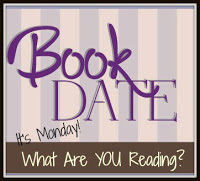 It’s Monday! What Are You Reading, hosted by Book Date!
It’s Monday! What Are You Reading, hosted by Book Date!
What Am I Writing?
I have one more article to finish adding to David P. Abbott and the Open Court, then I need to decide if I’m removing anything and start sorting out the table of contents and the footnotes. Should probably start playing around with a cover concept too.


May 28, 2016
Deal Me In, Week 21 ~ “The Glass Coffin”
Hosted by Jay @ Bibliophilopolis
“The Glass Coffin” by A. S. Byatt
Card picked: Four of Hearts
From: The Djinn in the Nightingale’s Eye: Five Fairy Stories
Thoughts: This is the third story from The Djinn in the Nightingale’s Eye that I’ve read in about a month. I mentioned the titular story in my last bunch of mini-reviews and I read “The Dragon’s Breath” at the beginning of May for Deal Me In, but didn’t review it. It wasn’t that “The Dragon’s Breath” wasn’t good, but it was very busy that weekend and I didn’t have much to say about it. I’m suffering from the latter again today.
“The Glass Coffin” is about a tailor who, in fairy tale style, is traveling through a dark forest. A dark forest isn’t really a great place to find work if you’re a tailor, but he finds a small house, offers his services, and ends up cooking dinner for the small gray man and animals who live there. For that, the gray man rewards the tailor with a choice of gifts. Will the tailor pick the ever-full purse? The pot that never empties? Or the beautifully crafted glass key? Considering the name of the story, I think you can guess which he picks and what might be in that glass coffin.
There is a little subversion of fairy tale tropes, but not much. For example, the rescued damsel is willing to be married, since that’s the way the tale is supposed to go, but she’d rather remain single. By the end of the tale, I wasn’t entirely sure if she gets her wish. All in all, I could imagine “The Glass Coffin” as a tale told as part of another fairy tale, that maybe it needs just an extra bit of context to really work.


May 26, 2016
15-ish Books of Summer 2016
 Cathy at 746 Books is hosting 20 Books of Summer again, or if you’re a slow reader like me, 10 15 Books of Summer. Looking back at last year, I’m pretty happy with how well I did. I finished 7/10 from my list! Picking from my other reading lists really kept things fresh. Instead of giving myself “switch-out” ability this year, I’m picking a dozen books. Against my better judgment, I’m going to shoot for 15 books (from a list of 20).
Cathy at 746 Books is hosting 20 Books of Summer again, or if you’re a slow reader like me, 10 15 Books of Summer. Looking back at last year, I’m pretty happy with how well I did. I finished 7/10 from my list! Picking from my other reading lists really kept things fresh. Instead of giving myself “switch-out” ability this year, I’m picking a dozen books. Against my better judgment, I’m going to shoot for 15 books (from a list of 20).
Library Books:
Magic Words: The Tale of a Jewish Boy-Interpreter, the World’s Most Estimable Magician, a Murderous Harlot, and America’s Greatest Indian Chief by Gerald Kolpan
The Nazi Séance: The Strange Story of the Jewish Psychic in Hitler’s Circle by Arthur J. Magida
ARCs:
Yevgeny Onegin by Alexander Pushkin
Books I’ve barely started and need to finish:
Sidney Chambers and the Shadow of Death by James Runcie
I Lie for Money: Candid, Outrageous Stories from a Magician’s Misadventures by Steve Spill
Gothics:
Affinity by Sarah Waters
Northanger Abbey by Jane Austen
Obscure Literary Monsters:
The Great God Pan by Arthur Machen
#ReadMyOwnDamnBooks:
The White Castle by Orhan Pamuk
Martin Dressler by Steven Millhauser
The Last Policeman by Ben H. Winters
The Sisters Brothers by Patrick deWitt
#ReadMyOwnDamnBooks (indie edition):
Greylock by Paula Cappa
Hank Mossberg, Private Ogre: Murder in the Boughs by Jamie Sedgewick
Classics I’ve been meaning to read/reread:
Frankenstein by Mary Shelley (I signed up for a class…)
The Narrative of Arthur Gordon Pym of Nantucket by Edgar Allan Poe
“The Business Man” by Edgar Allan Poe (just a short story, not counted in the 17)
The Unknown Poe, edited by Raymond Foye
In Case I Need Fun:
Decent into the Depth of the Earth by Paul Kidd
Smoke and Mirrors by Mike Costa, Jon Armstrong & Ryan Browne
Thug Notes by Sparky Sweets
(Subject to change before June 1st. ;) )


10 Books of Summer 2016
 Cathy at 746 Books is hosting 20 Books of Summer again, or if you’re a slow reader like me, 10 Books of Summer. Looking back at last year, I’m pretty happy with how well I did. I finished 7/10 from my list! I also think picking from my other reading lists really helped keep things fresh. Instead of giving myself “switch-out” ability this year, I’m picking a dozen books.
Cathy at 746 Books is hosting 20 Books of Summer again, or if you’re a slow reader like me, 10 Books of Summer. Looking back at last year, I’m pretty happy with how well I did. I finished 7/10 from my list! I also think picking from my other reading lists really helped keep things fresh. Instead of giving myself “switch-out” ability this year, I’m picking a dozen books.
Library Books:
Magic Words: The Tale of a Jewish Boy-Interpreter, the World’s Most Estimable Magician, a Murderous Harlot, and America’s Greatest Indian Chief by Gerald Kolpan
The Nazi Séance: The Strange Story of the Jewish Psychic in Hitler’s Circle by Arthur J. Magida
ARCs:
Yevgeny Onegin by Alexander Pushkin
Books I’ve barely started and need to finish:
Sidney Chambers and the Shadow of Death by James Runcie
I Lie for Money: Candid, Outrageous Stories from a Magician’s Misadventures by Steve Spill
Gothics:
Affinity by Sarah Waters
Northanger Abbey by Jane Austen
Obscure Literary Monsters:
The Great God Pan by Arthur Machen
#MyOwnDamnBooks:
The White Castle by Orhan Pamuk
Martin Dressler by Steven Millhauser
The Last Policeman by Ben H. Winters
The Sisters Brothers by Patrick deWitt
(Subject to change before June 1st. ;) )


May 25, 2016
May 24, 2016
Mini Reviews, Vol. 3 ~ Me Before the Kitten Holy in the Nightingale’s Eye
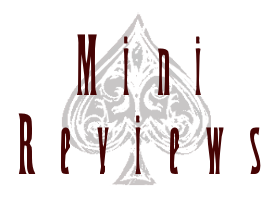

Lumberjanes, Vol. 1: Beware the Kitten Holy by Noelle Stevenson, Grace Ellis, Brooke A. Allen (Illustrator), Maarta Laiho
Lumberjanes was the perfect pick for 1am during the Readathon. It’s rollicking fun with a great cast of girls having adventures and being awesome. While I don’t require my adventure-having protagonists to be female, it’s really nice to see once in a while, you know? I wasn’t expecting the fantasy elements, but it wasn’t unwanted either. Lumberjanes totally lives up to the hype.
“The Djinn in the Nightingale’s Eye” by A.S. Byatt
Despite the fact that they are a trope unto themselves, I think djinn are fairly underused in fiction. I always have my eye out for a good djinn tale. This one is excellent, about how power over someone else can mold their destiny. Weighty, but it’s told with a light touch and is very funny on occasion. With many allusions to other literature and set against an academic conference, it reminded me of being in college.
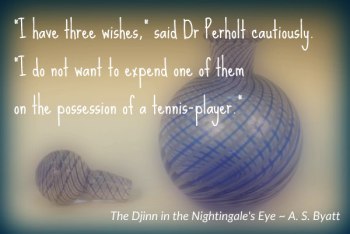 Did you know that nightingale’s eye is a type of glass?
Did you know that nightingale’s eye is a type of glass?
Me Before You by Jojo Moyes
I’ll be honest, I decided on this audio book after seeing a trailer for the impending movie. While not my usual reading fare, I was in the mood for a frothy romance. And, well, Me Before You has some of that…and quite a bit of seriousness too. I must say, I really appreciated the ending.


May 23, 2016
Magic Monday ~ Magical Podcasts
I like Mondays. I also like magic. I figured I’d combine the two and make a Monday feature that is truly me: a little bit of magic and a look at the week ahead.
On a Monday a couple of weeks ago, my Joseffy Google alert pointed me toward a podcast called Audio Dime Museum. “What is this?” I wondered, “and what does it have to do with my favorite magician?” There seemed to be a narrative structure and Joseffy’s episode was #6, so I figured I could easily start from the beginning. Each episode does have a narrative frame—the Curator spins tales about objects which seem to have have connections to you, a bothered visitor, and the strange goings-on at the museum. The tales, though, are true. Some dark, some wondrous, all are based on historical events.
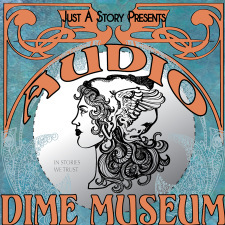
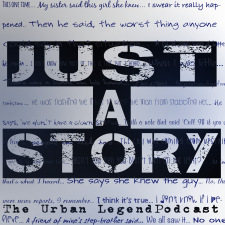
But that’s not all! Jake and Sam, the duo behind Audio Dime Museum, have another podcast: Just a Story. Dip in anywhere for discussions of urban legends and other pop culture spookiness. Of course, I really enjoyed the episode about ouija boards and spiritualism.
This is good stuff, my podcast listening friends.
Audio Dime Museum (on iTunes)
Just a Story (on iTunes)
Or find them on your favorite aggregator/app (like Short Orange)
It’s Monday, What Are You Reading?
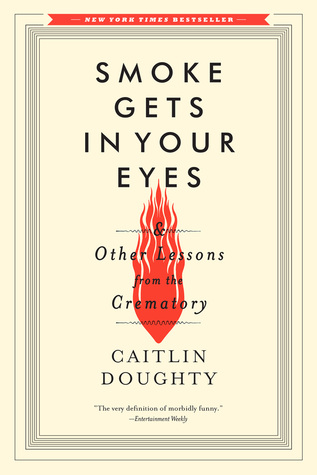

So, I have shelves full of books. But I went to the library a couple weeks ago and checked out three more books. And then I checked out Grady Hendrix’s My Best Friend’s Exorcism from the digital library (and finished it in a day), followed by Smoke Gets in Your Eyes by Caitlin Doughty. Not doing so well at #readMyOwnDamnBooks this month, but at least I’m finally getting some reading done. This week, I might also finish The Improbability Principle by David J. Hand.
 It’s Monday! What Are You Reading, hosted by Book Date!
It’s Monday! What Are You Reading, hosted by Book Date!
What Am I Writing?
Should finish adding articles to David P. Abbott and The Open Court. I have two left, but also an article from the Journal of the American Society for Psychical Research which might go in if it isn’t too redundant. And I guess I haven’t really decided on “Thoughts on Time, Space, and Existence” from The Monist…


May 21, 2016
Deal Me In, Week 20 ~ “The Funeral”
Hosted by Jay @ Bibliophilopolis
“The Funeral” by Richard Matheson
Card picked: Jack of Diamonds
From: I Am Legend, and other stories
Thoughts:
Morton Silkline is a funeral director. He runs a reputable business and is willing to provide clients with anything they might need—if they can afford it, of course. Therefore, he has no problem providing the Eternal Rest room and a top of the line casket for Ludwig Asper when Asper says that money is no object. Unfortunately, Asper intends to enjoy his funeral to the fullest with all his very eccentric friends.
This was an amusing tale, although I thought the language occasionally got in the way. For example, Silkline is in charge of Clooney’s Cut-Rate Catafalque. As a whole, the story doesn’t entirely keep up that tone. While Richard Matheson wrote several Twilight Zone episodes, “The Funeral” would fit perfectly into the ’80s anthology show Monsters, a late night favorite of mine when I was young.


May 18, 2016
What Else Wednesday ~ if Programming == Writing : continue
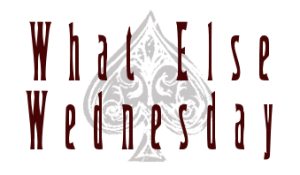
What Programming Might Teach Me About Writing
For the past year, I’ve been taking a smattering of online programming classes. These are for my personal edification: not because I’m bent on a career change, but because it’s good to stretch your brain once in a while. Coding requires a different manner of problem solving than what I’m used to. Tasks are approached and torn apart in a more hierarchical manner, which can be foreign to a writer/reader of (mostly) linear narratives. But, I wonder if my process for programming can be adapted to writing.
Let me state, coming at this as a 40 year-old, I am probably not the world’s best coder. While I’ve been involved in webdesign for a while, HTML and CSS aren’t true coding languages. My process is probably ugly and possibly backward, but it gets the job done. Still, I apologize in advance to any engineer/coder I know who might read this.
For me, the process of coding goes something like this:
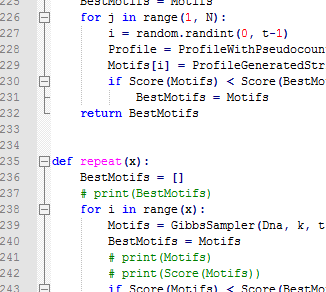 A bit of code from my final BioInformatics assignment. There are print statements still intact, but commented out.
A bit of code from my final BioInformatics assignment. There are print statements still intact, but commented out.Decide what the program should do.
Stare at my blank text editor for 2-3 minutes and mutter “I have no idea what I’m doing” at least twice.
Really consider what the program needs to do to get the end result and start breaking it down to its smallest components.
Shrug. Begin to define functions (most of which I’ll need), declare variables (some of which I won’t need), and write print statements that will give me feedback as I test each piece.
Rare is the code of any complexity that executes as expected the first time…
Error messages usually point to a specific line. I interpret what I’m being told and go back to step four and correct my error(s).
Sometimes, the output isn’t at all what I expected and I have to go back to step three and figure out what I’ve made the program do versus what it should do.
Repeat 3-5 until I have all the pieces working together to create a program that does what I wanted it to do. Remove the half dozen print statements I’ve been using to test various parts.
Now, I’m going to look at these steps to see what I can apply to writing:
Decide what story to tell. I rarely start with a full story (beginning, middle, *and* end) in mind when I start writing. This causes problems for me.
Stare at a blank page for 2-3 minutes and mutter “I have no idea what I’m doing” at least twice. (…Step two in coding might have come from my time as a writer…)
Really consider the story. Do I have an ending? What scenes do I need to get there? What characters do I need? What subplots? In coding, this step usually involves me writing a commented out “narrative” of steps. Why don’t I do this when I write?
The simplest translation of this step is “shrug and write junk.” When coding, I have no problem writing junk. It’s actually sort of freeing. For me, it’s a necessary part of problem solving in that venue…
…Yet, when I write I have this expectation that my first draft is going to be perfect. When writing, I have an aversion to going backward, getting rid of what doesn’t work or trying something that might not work but might teach me something about what’s going on. (Or trying something that might work! Most of my programming has been in Python, but the brief time I spent with JavaScript consisted of me trying syntax that I wasn’t sure about, but usually worked.)
Whether this can lead to a fully functioning, entertaining story, I don’t know. What I do know is that I’m a bit stuck in my writing process and a change of direction might be what I need.
I’m going to get back to writing Abbott novellas in the near future. When I do, I’m going to keep in mind a few of the above points.
(Also, if you’re interested in learning to code, I highly recommend the Programming for Everybody course from the University of Michigan through Coursera. The instructor loves his subject and his work.)



